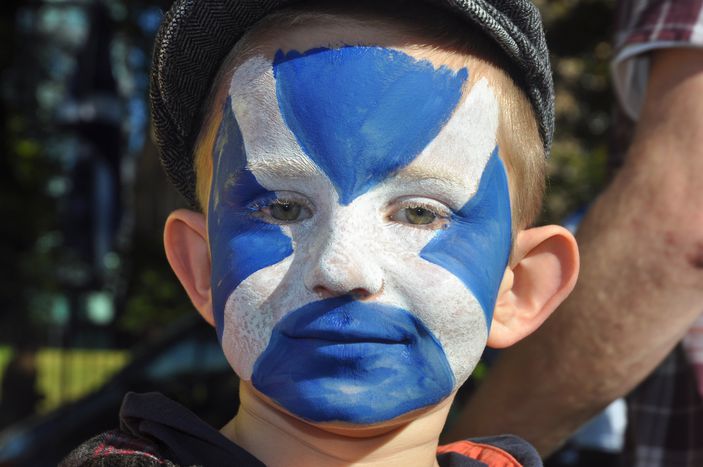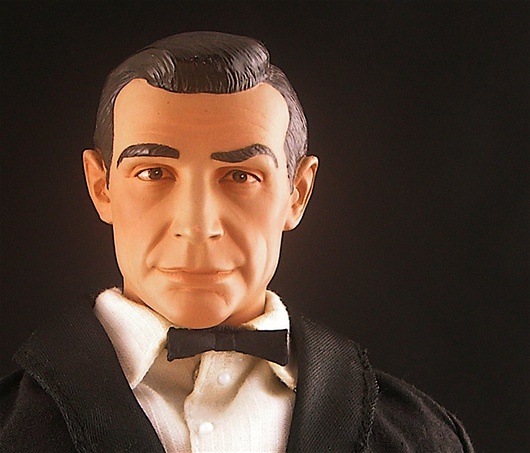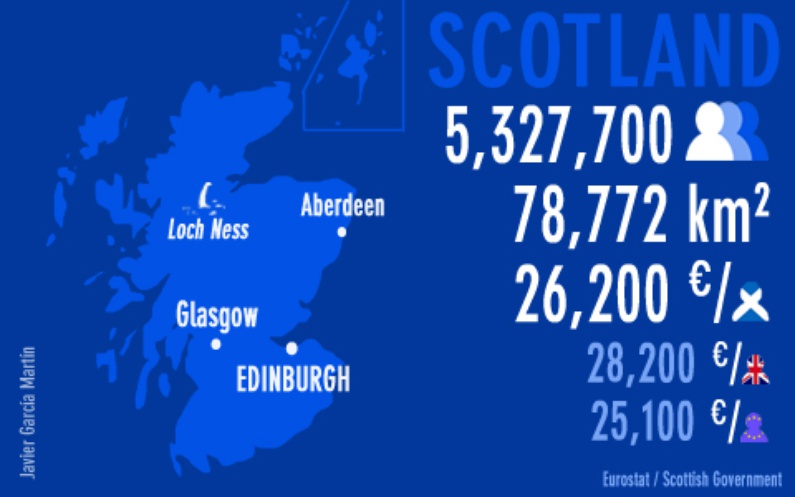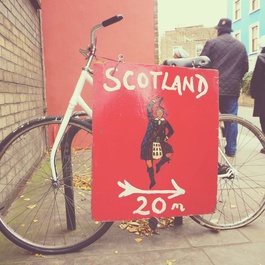
Scotland's independence : 007's toughest mission
Published on
Translation by:
Emanuel Nevárez PagánWith the odds stacked against it, the Scottish National Party must somehow muster the strength during the next two months to deal the final blow on September 18, referendum day, in hopes of swaying the remaining 20% of undecided voters who still haven't warm up to the idea of rebuilding Adrian's Wall.
 “Scotland has an opportunity to make a step change”, noted Scottish actor Sean Connery in British weekly magazine New Statesman. The fictional agent in her Majesty's Secret Service was pleading his fellow countrymen to vote on September for the independence of “one of the most familiar countries on earth” in order to stir “renewed focus on our culture as well as our new politics”. “There is no more creative an act than creating a new nation”, he added at the end of his statement. Nevertheless, notwithstanding the inspiring words of sir Sean Connery, the truth is that none of the polls show a pro-independence lead since last August, when a survey taken by the Scottish National Party (SNP) - architect, alongside the government in London, of the referendum - revealed a slight lead in favour of independence by a mere 1% margin. Today, recent polls have unequivocally shown a comfortable ten-point lead in favour of the status quo, supported by the “Better Together” campaign, despite a nearly 27% of undecided voters. With these numbers in mind, separatists desperately continue their onslaught while Unionists cautiously hold their ground.
“Scotland has an opportunity to make a step change”, noted Scottish actor Sean Connery in British weekly magazine New Statesman. The fictional agent in her Majesty's Secret Service was pleading his fellow countrymen to vote on September for the independence of “one of the most familiar countries on earth” in order to stir “renewed focus on our culture as well as our new politics”. “There is no more creative an act than creating a new nation”, he added at the end of his statement. Nevertheless, notwithstanding the inspiring words of sir Sean Connery, the truth is that none of the polls show a pro-independence lead since last August, when a survey taken by the Scottish National Party (SNP) - architect, alongside the government in London, of the referendum - revealed a slight lead in favour of independence by a mere 1% margin. Today, recent polls have unequivocally shown a comfortable ten-point lead in favour of the status quo, supported by the “Better Together” campaign, despite a nearly 27% of undecided voters. With these numbers in mind, separatists desperately continue their onslaught while Unionists cautiously hold their ground.
This will be the third time in the last 35 years that the Scots will choose their fate regarding their political ties with the United Kingdom. In 1979, the votes favouring independence came up short and were unable to reopen the Scottish Parliament, closed since the annexation of Scotland by England in 1707. The “reestablishment” of the Scottish Parliament would finally come after a second referendum was launched in 1997 by the Labor Party under Tony Blair's administration. 
still On the fence
Today, the final decision will have farther-reaching consequences than ever before : independence, besides establishing a frontier, will require the new sovereign country to begin negotiations with Westminster on critical issues such as ownership of the profitable oil deposits off the coast of Scotland in the North Sea, the adoption of the British pound as Scotland’s official currency, and the fate of the strategic British nuclear arsenal - located in Scottish waters - which currently allows the United Kingdom to maintain its influence in international diplomacy as one of the permanent members of the UN Security Council.
Elsewhere, the real battle is being fought digitally on social networks. On their last campaign video, those in favour of independence were passionately selling the hopes of an independent Scotland capable of fostering the progress of future generations. Meanwhile, Unionists are doing everything in their power to appeal to the Scots' British side claiming that : “we are team GB”, as one of their messages reads.
The first written constitution
 In any case, Scottish authorities are planning for a victory. They already submitted the first draft of a new Constitution - a revolutionary document - in an effort to incite the people to vote. Subject to editing by the citizenry, the document declares Scotland a sovereign country - albeit keeping queen Elizabeth II as head of State, assumes control of European legislation, and makes a commitment towards environmental conservation - since the Scottish Green Party is the only ally of the SNP in the defence of independence that currently holds seats in the Scottish Parliament.
In any case, Scottish authorities are planning for a victory. They already submitted the first draft of a new Constitution - a revolutionary document - in an effort to incite the people to vote. Subject to editing by the citizenry, the document declares Scotland a sovereign country - albeit keeping queen Elizabeth II as head of State, assumes control of European legislation, and makes a commitment towards environmental conservation - since the Scottish Green Party is the only ally of the SNP in the defence of independence that currently holds seats in the Scottish Parliament.
However, it all remains painfully uncertain. At the moment, only one map acknowledges Scotland's independence: the map found in cyberspace. On July 16, sources announced the launching of the public domain name .scot. In September, the Scots will finally confirm if, once again, the digital world got ahead of reality, or if, on the contrary, it only sold false hopes of a lifelong dream.
Translated from NO, Sean Connery, puede que no veas una escocia independiente



